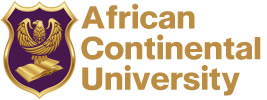YEAR FOUR SEMESTER ONE
|
COURSE CODE
|
COURSE TITLE | T | P | C |
|
Core Courses
|
||||
|
STM 401
|
Tourism Impact Studies | 3 | 1 | 3 |
| STM 403 | Tourism Development in Ghana | 3 | 1 | 3 |
|
STM 405 3 1 3
|
Hospitality Management I | 3 | 1 | 3 |
|
STM 400
|
Project/Dissertation I | 0 | 3 | 3 |
|
Electives:
|
Select Two Electives From This Section | |||
| STM 407 | Eco-Tourism | 3 | 1 | 3 |
| STM 409 | Environment, Culture and Location | 3 | 1 | 3 |
| STM 411 | Gender, Leisure and Tourism Development I | 3 | 1 | 3 |
| STM 413 | Human Resource Management in Tourism I | 3 | 1 | 3 |
| Total | 18 | 13 | 18 |
STM 401: Tourism Impact Studies (T3 P1 C3)
This course examines critically the economic social, cultural environmental and physical impacts of tourism. It also introduces students to impact assessment procedures for tourism development. It would include practical sessions of selected tourism projects.
STM 403: Tourism Development in Ghana (T3 P1 C3)
Students will be introduced to various development policies of Ghana with emphasis on Tourism. Policies from the colonial period to the most recent will be discussed and analyzed. The various sectors of the tourism industry and their roles and contribution to development in the country shall be examined. The tourism infrastructure and its overall contribution to the development of the country shall be described and assessed.
STM 405: Hospitality Management I (T3 P1 C3)
This course is aimed at equipping students with basic principles of hospitality management. Topics covered are meaning; nature and scope of hospitality management; concepts of hospitality management; process of hospitality management; organizational structure of a hospitality facilities; business objectives, and responsibility of hospitality facilities. Others are Communication; decision making; motivation and staff management in a hospitality unit.
STM 407: Eco-Tourism (T2 P1 C2)
This course seeks to introduce students to the concept and components of eco-tourism and its potential to give the tourism industry a boost. They are specifically to be introduced to the nature and components of the eco-system, interactions within a specific ecological set up, and the judicious and effective use of ecological systems to ensure sustainability. Students are also to be introduced to the various measures of conservation of ecological resources, and the benefits of eco-tourism to the community.
STM 409: Environment, Culture and Location (T2 P1 C2)
This course introduces students to the processes, which generate distinctive human and environmental patterns. The interaction of geographic elements is studied as they are expressed in the spatial organization of the environment. Students are guided to critically assess how environmental, cultural, and locational attributes have severally and individually influenced the spatial organization of human societies. The similarities and dichotomies in these interactions and their touristic appeal form the raison d’être of this course.
STM 411: Gender, Leisure and Tourism Development I (T2 P1 C2)
The module explores in leisure and tourism in the areas of employment, participation and consumption. It explores current ideas relating to gender (the feminine and the masculine) in definitions of leisure, employment patterns, sex tourism and leisure marketing, age, discourses of the body and sexuality. These issues are explored through a research-based assessment strategy.
STM 413: Human Resource Management in Tourism I (T2, P1, C2)
As a service industry, tourism businesses rely on their ability to attract and retain high quality staff. This course covers industrial organizations and the evolution of human resource management in the tourism industry. Engaging, training, and retaining the best possible staff is often the only thing that differentiates a business from its competition. Effective human resource management is essential for businesses in attracting, recruiting, managing, developing, retaining and even letting go staff. Areas that will be covered include tourism and human resource issues, human resource management issues in small tourism businesses, empowerment in the tourism industry and Management philosophies and strategies of organizations.
STM 300: Industrial Attachment (T0 P4 C2)
All students would be required to undergo a practical job attachment during the long vacation in their third year. This requirement is to offer trainees the opportunity to gain some real-life experience and prepare them for the world of work. They would be expected to present reports on experiences gained. This job attachment would attract 2 credits, which would be awarded in the semester following the internship period.
STM 400: Dissertation (0,12, 6) (3 Credits per Semester)
Final Year students are expected to conduct research, under supervision, on a given topic in her/his area of specialisation as part of the requirements for the award of the BSc Degree. The topic, which needs to be approved by the student’s supervisor, must be such that the study is development – oriented.

